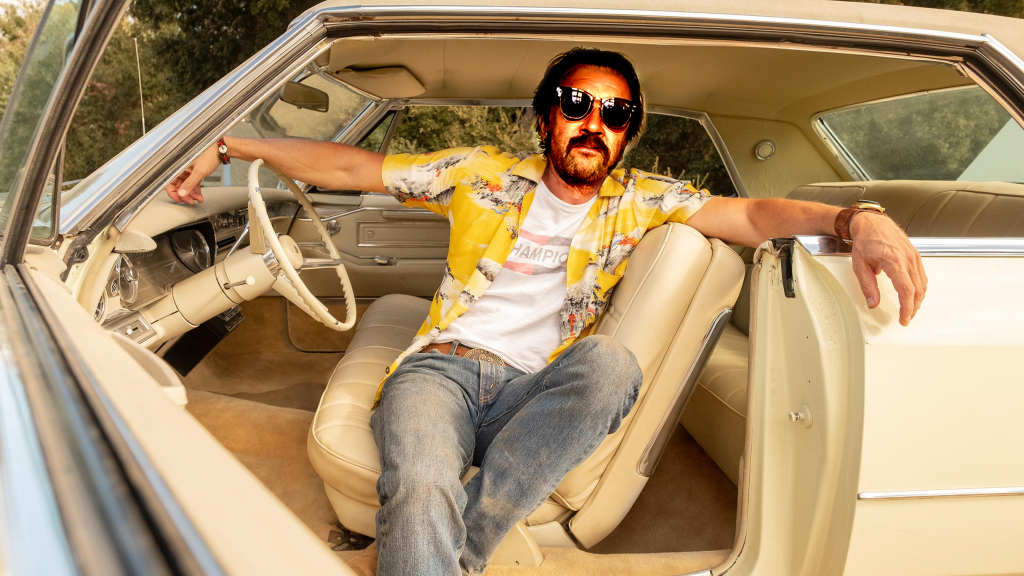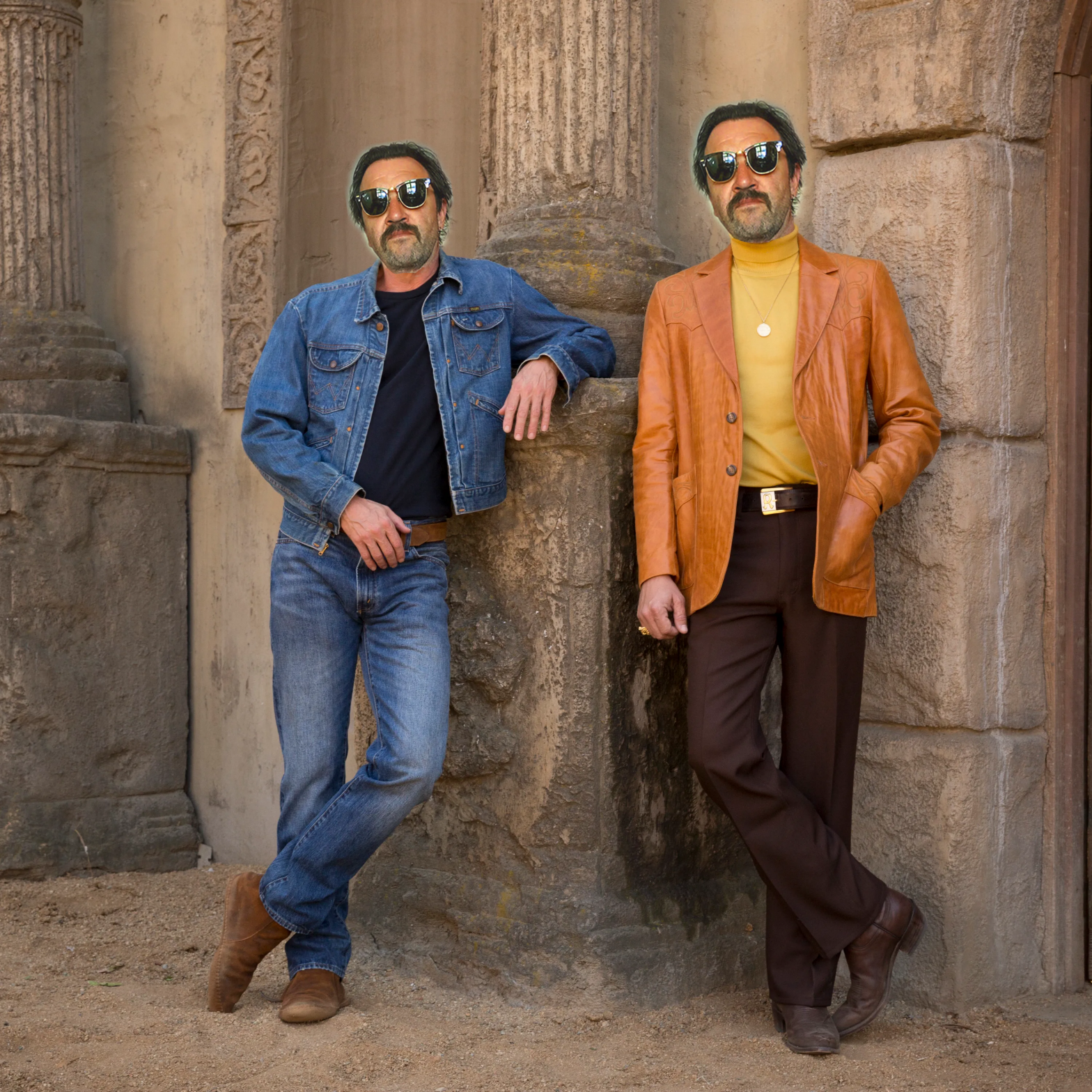Do you have any famous friends and did you know them before fame struck? It has never happened to me. It must be odd to know someone as one thing – a school friend perhaps or a colleague at a fast food outlet – and then to hear others describe them in considerably more prosaic ways. The ‘uniquely talented comedian’ revered and adored by their legion of fans was once, to you, just the ‘fat kid at school’ trying not to get bullied. It happens, more often than we think but, alas, never to me.
A big Hollywood star, Brad Pitt for instance, is aptly described as such. The celestial bodies with which he is compared exert a powerful gravitational pull that draws nearby objects into their orbit. Depending on the size of the star, this is a circle from which it is difficult to find a release and, of course, most people aren’t exactly trying to break free (unless you are Angelina Jolie I guess). Having someone with the profile of Brad Pitt knowing that you exist is, I am sure, something of a rush. To be honest, Brad is probably one of those that even his former playground tormentors and erstwhile MacDonalds colleagues thrill at the thought that they might be, in some way or other, still in his thrall.

I have, over time, come to the understanding that our existence is contingent on our subjectivity being acknowledged and affirmed by other beings – if no one knows we are there then, effectively, we aren’t. This might seem, at first glance, that I am playing some sort of philosophical game here. We are all familiar with the debate – does a tree falling deep in the Amazonian forrest make no sound because there is no one there to hear it? (Yes) To an extent that is exactly what I am doing. There are a number of ways in which we can convince ourselves that we are ‘there’ – our reflection, our shadow, our pain and our pleasure all testify to there being a human presence somewhere in the vicinity of where we perceive ourselves to be. But what is existence? It cannot merely be a question of being – the fact of a human entity occupying space – there has to be more to it than that? There is – other people. That we are known to someone else provides a distinct definition to what would otherwise be the shapeless space we occupy.
As individuals in isolation we might ‘be’ but it is in the company of others that we become. On our own we struggle to develop and grow, we need the nourishment of healthy relationships to help build and sustain us. None of this is news exactly, despite Jordan Peterson describing the individual as sovereign, we clearly rely on those around us to some extent. Peterson, and those that follow his thinking, would probably disagree with me as what that extent is. For me it is total – 100% – all our thoughts and feelings, everything we do or say is contingent on the fact there are other people that know us or know of us.
This starts with our existence being acknowledged by someone which sounds much simpler than it actually turns out to be. You would think that there could be nothing more straightforward than two humans regarding one another as such but the truth, for many, is that they are denied this basic act recognition on a daily basis. This, I must stress, is not in reference to actress and comedian Dawn French recently suggesting that now she has turned 60 she has become ‘invisible’. Whilst I cannot deny the truth of someone else’s apparent ‘lived experience’, I also don’t accept that one can equate someone with as high a profile as French complaining that she no longer gets the attention she feels she deserves with the plight of a more numerous and greatly ignored group of people in society. I refer, of course, to the homeless sleeping on the streets of many of our cities. We all ‘see’ them ,as we go about our busy lives, sitting or lying on the floor wrapped in a sleeping bag. They might be begging, but not always. A lot of the time, in my experience, they just want to speak to you and for you to speak back to them like they were, well, human. Most people seem to ignore them and hurry past, pretending that they are not there. Right there is the key word – pretending – they are well aware of their presence the just refuse to engage. That is worse that Dawn French’s perceived blights but still not the worst way in which we can disregard people.
Anyone that pays even the scantest attention to the news will be familiar with the way in which stories of the day are reinforced by the use of statistics. I took a glance at the headlines in todays papers and found this:
More than 50 feared drowned after migrant boat sinks off Tunisia
We will all see headlines such as these every time we open a paper or access an on-line news service. We might choose to look more closely or perhaps we just scroll through to the next item. What we are unlikely to do (assuming we are in the UK and have no connection with Tunisia) is to consider that this story reveals the end of up to 50 actual lives of real people with real families and real friends. That this is the end of the hopes and dreams of 50 souls, striving to startup a new life that they believe will be better and certainly worth the risks involved in trying to attain it. That somewhere else in the world another person, very much like them, is reading this and knows or fears that their friend, their father, their son, brother, uncle, aunty, grandmother… is now dead. That they died in horrific circumstances, in terrible fear and trepidation, hungry, tired and emotionally wrought, at the end of their tether and, literally, the end of their lives.
What about this one:
Climate crisis to put millions of British homes at risk of subsiding
Again, if you live in Britain you will look at this item of news and, again you might not choose to read it. If you did open the link or read the article then it may be because you are concerned that either, at worst, you are ‘one in a million’ and reside in one of the areas at risk or, slightly better, you might know someone that is. There are very obvious reasons why we would treat these two news stories in the way I have described. The most obvious one, and the the one that I would like to put to one side for the moment, is that we are potentially directly affected by the events depicted – it might be you! The second is the phenomena that is popularised by the phrase ‘compassion fatigue’ and is based around the idea that we hear so much bad news ‘these days’ that we have almost exhausted our supply of sympathy or empathy and now all we have left is apathy. This is characterised as the only response we are now capable of lest we completely run out of compassion and something serious comes along (Jennifer Saunders starts to feel neglected because of the attention Dawn French is now getting?) and we are incapable of an appropriate response. But that is, as we all know, a falsehood. We haven’t worn out our compassion we have had it surgically removed by successive governments promoting nonsense ideas of meritocracy, of worth and value, of deserving and undeserving. It’s not that we don’t want to care its that we don’t know how to show proper concern for the plight of other people, most of whom are struggling with the same stresses and strains as we are.
So how do we change this, how do we relearn to care for each other? I think it starts with a basic regard for one anothers humanity and a recognition of their individual dignity. This is not based on their worth or their value or whether they deserve it – that is a given. We might think that Dawn French is being precious, we might consider that the person with nowhere to live may have made some poor choices in their life, we might even think that the migrant took their chances and failed to assess and appraise the risk prior to boarding the boat from which they drowned. But we can still care about them. And we can remind ourselves of this care in the way that we treat everyone we meet and we can acknowledge that they exist in the same world that we do.
It might not make them feel the same way that they would if you were Brad Pitt but it will make them feel something.

